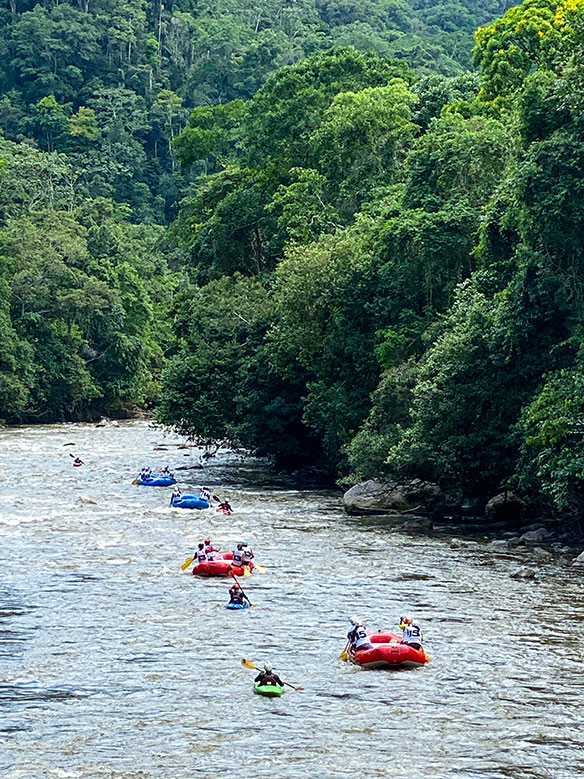
Tourism project reflects end of Colombian conflict

Colombia’s Pato River is seen as having eco-tourism potential.
IAN STALKER
Some former combatants in Colombia’s long and now-ended civil war have gone from fighting government troops to battling Amazon Basin rapids.
A handful of former FARC guerillas who participated in an insurgency that lasted over half a century and is blamed for the deaths of over 200,000 people have undergone training as rafting guides, part of a larger reconciliation process following a 2016 agreement that saw the end of the conflict.
The one-time combatants have been trained as rafting guides who will take tourists along the remote Pato River in Colombia’s Amazon region, a project that has the backing of the United Nations and is aimed at helping residents of the sparsely populated area generate incomes through eco-tourism.
FARC held sway in the area during the war.
The rafting project – part of an effort to help the guerillas integrate into mainstream society – has drawn the approval of Costa Rica-based Rafael Gallo, honorary president of the International Rafting Federation, who labels the Pato a “great” waterway for rafting that’s both fun and technical.
Gallo himself travelled 5 kms of the Pato in a raft that worked itself along class 3 and 4 rapids during a visit to assess the Pato’s potential for rafting tourism.
The former FARC members were impressed that Gallo travelled to their region from Costa Rica to help them establish themselves in tourism.
Five former FARC members joined three civilians as part of a Colombian team at the rafting world championships in Australia.
Gallo — originally from El Salvador, which also saw a civil war that’s long since over – praises the Pato – now dubbed by some as the River of Reconciliation – as beautiful, although the area is lacking in tourism infrastructure.
Gallo’s own visit there left him upbeat about Pato River rafting prospects and he sent two guides to train the Colombians and then invited the Pato River team to the Australian competition.
He says he believes there will be plenty of tourists interested in rafting the Pato and they won’t be uneasy that they’re travelling the waterway with men who were previously wielding assault rifles.
And he adds he’s also confident that those tourists will be in good hands on their waterborne journeys.
“They have learned very well, very fast,” he states of the newly minted river guides.
